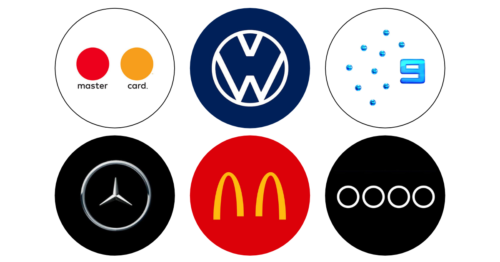A pandemic like COVID-19 can bring out the best and worst in people. Household brand names like McDonald’s, Volkswagen, Audi and others are all doing their part in reinforcing the social distancing message. Others just see opportunism, filing trade mark applications for COVID-19 covering bumper stickers, pencils and even for cleaning products. Trade mark offices around the world are being forced into a new frontier.
Brands can do much more than promote the goods and services they are associated with.
The social distancing message that has become the new status quo has been absorbed by many of our much-loved brands, as they adapt their logos accordingly.
Take McDonalds for example. It has taken the well-recognised “golden arches” and split them down the middle to depict two separate arches at an appropriate “social distance” (metaphorically speaking, of course).

True, one of the primary purposes of a brand is to indicate the source of goods or services, but a brand can do much more. Done properly, a brand coveys a promise to consumers about what they can expect to experience from their goods. And, when a well-recognised brand is used in an unconventional way (as it has with some of the examples discussed here), it can create an experience that both reinforces brand awareness and, contribute to society in a meaningful and positive way.
But in times like these, we have also seen opportunists scurry to secure exclusive rights over what are now everyday terms like “COVID-19” and “Coronavirus”. Examples include recent Australian trade mark applications for COVID-19 covering bumper stickers, pencils and even cashmere clothing and “Corona-virus resistant” for cleaning products.
The Australian trade mark office will most likely consider the term “Corona-virus resistant” to describe a quality or feature of the cleaning products and will, therefore, be considered too descriptive to be registrable, unless the applicant can point to a history of use of the term that demonstrates the mark has been used so extensively that consumers have come to associate the term with the applicant’s cleaning products. Without wanting to prejudge the outcome, it appears this is unlikely to be the case. This is just Australia. Trade mark offices around the world are receiving many similar such applications.
A pandemic like COVID-19 can bring out the best and worst in people. It remains to be seen what will happen to the various opportunistic trade mark applications filed globally, but in the meantime, the efforts of consumer brands remind us that we must all do our part to “flatten that curve” (a phrase which is not the subject of trade mark application in Australia, yet … ).
